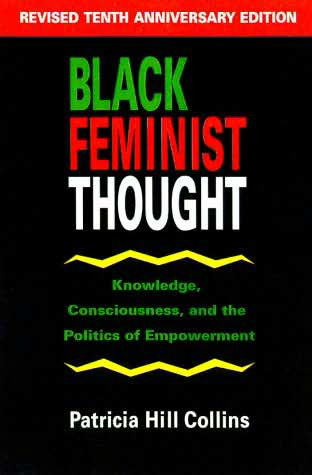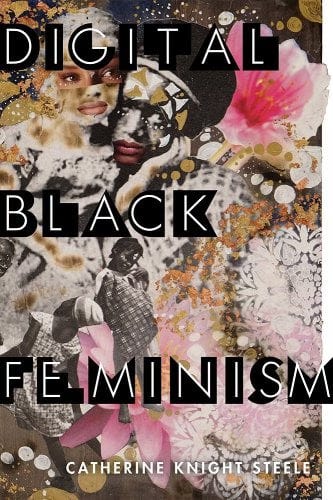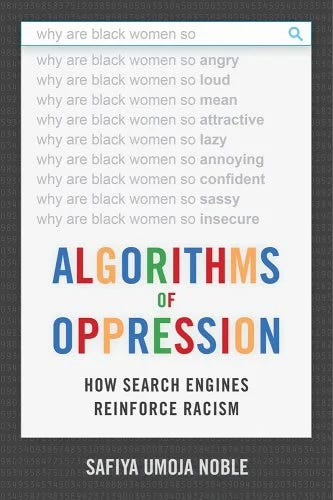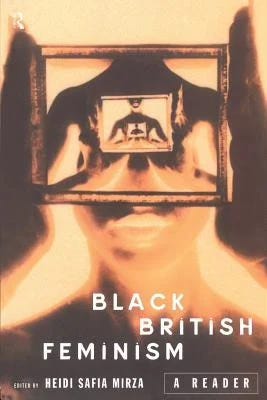editor’s note
hi all! wanted to drop by and give context for this syllabus. this was something curated between me and one of my advisor’s in grad school for an independent study. i took this during the summer of 2022 as i was beginning to work on my final thesis. i knew i wanted to approach my analysis of black internet space/social media platforms from a black feminist lens and was lucky to be working with a black woman years into her academic career.
i enjoy sharing aspects of my grad school journey as a student of critical ethnic studies because it is an academic field that i feel is extremely underrepresented and extremely necessary. hope there’s something to you can take away from this!
course description
This independent study is designed to engage Black Feminist Research Methods. Specifically, through readings, and discussion Shannan Moore and her advisor will construct a curriculum that will introduce the ways that ethnic studies researchers engage research questions and design studies that produce results that enhance our knowledge about Black women in the diaspora.
To that end, Shannan’s project focuses on the African diaspora and the transnational intra-community conflicts around authenticity, cultural contributions, and the meaning of community. Shannan’s project is also examining the medium of these ‘diaspora wars,’ so we will also examine texts that critically engage social media and race.
required books

In spite of the double burden of racial and gender discrimination, African-American women have developed a rich intellectual tradition that is not widely known. In Black Feminist Thought, originally published in 1990, Patricia Hill Collins set out to explore the words and ideas of Black feminist intellectuals and writers, both within the academy and without. Here Collins provides an interpretive framework for the work of such prominent Black feminist thinkers as Angela Davis, bell hooks, Alice Walker, and Audre Lorde. Drawing from fiction, poetry, music and oral history, the result is a superbly crafted and revolutionary book that provided the first synthetic overview of Black feminist thought and its canon.

Recently, Black women have taken the world stage in national politics, popular culture, professional sports, and bringing attention to racial injustice in policing and the judicial system. However, rarely are Black women acknowledged and highlighted for their efforts to understand the social problems confronting our generation and those generations that came before us. In the post-civil rights era, research faculty and theoreticians must acknowledge the marginalization of Black women scholars’ voices in contemporary qualitative scholarship and debates.
Black Feminism in Qualitative Inquiry: A Mosaic for Writing our Daughter's Body engages qualitative inquiry to center the issues and concerns of Black women as researcher(s) and the researched while simultaneously questioning the ostensible innocence of qualitative inquiry, including methods of data collection, processes of data analysis, and representations of human experiences and identities. The text centers "daughtering" as the onto-epistemological tool for approaches to Black feminist and critical race data analysis in qualitative inquiry.
Advanced and novice researchers interested in decolonizing methodologies and liberatory tools of analysis will find the text useful for cultural, education, political, and racial critiques that center the intersectional identities and interpretations of Black women and girls and other people of color. Daughtering as a tool of analysis in Black feminist qualitative inquiry is our own cultural and spiritual way of being, doing, and performing decolonizing work.

Why do so many Africans believe they cannot break the “One Step Forward, Two Steps Back” cycle? Six decades after colonial flags were lowered and African countries gained formal independence, the continent struggles to free itself from the deep legacies of colonialism, imperialism and patriarchy. Many intellectuals, politicians, feminists and other activists, eager to contribute to Africa’s liberation, have frustratingly felt like they took the wrong path. Analyzed through the eyes of Afro-Feminism, this book revisits some of the fundamental preconditions needed for radical transformation. It challenges the traditional human rights paradigm and its concomitant idea of “gender equality,” flagging instead, the African philosophy of Ubuntu as a serious alternative for reinvigorating African notions of social justice. If you are a student of Africa or in a space where you wish to recalibrate your compass and reboot your consciousness in the struggle for Africa’s liberation, this book is for you.

Black women are at the forefront of some of this century’s most important discussions about technology: trolling, online harassment, algorithmic bias, and influencer culture. But, Catherine Knight Steele argues that Black women’s relationship to technology began long before the advent of Twitter or Instagram. To truly “listen to Black women,” Steele points to the history of Black feminist technoculture in the United States and its ability to decenter white supremacy and patriarchy in a conversation about the future of technology. Using the virtual beauty shop as a metaphor, Digital Black Feminism walks readers through the technical skill, communicative expertise, and entrepreneurial acumen of Black women’s labor—born of survival strategies and economic necessity—both on and offline.
Positioning Black women at the center of our discourse about the past, present, and future of technology, Steele offers a through-line from the writing of early twentieth-century Black women to the bloggers and social media mavens of the twenty-first century. She makes connections among the letters, news articles, and essays of Black feminist writers of the past and a digital archive of blog posts, tweets, and Instagram stories of some of the most well-known Black feminist writers of our time. Linking narratives and existing literature about Black women’s technology use in the nineteenth, twentieth, and twenty-first century, Digital Black Feminism traverses the bounds between historical and archival analysis and empirical internet studies, forcing a reconciliation between fields and methods that are not always in conversation. As the work of Black feminist writers now reaches its widest audience online, Steele offers both hopefulness and caution on the implications of Black feminism becoming a digital product.

In spite of the double burden of racial and gender discrimination, African-American women have developed a rich intellectual tradition that is not widely known. In Black Feminist Thought, originally published in 1990, Patricia Hill Collins set out to explore the words and ideas of Black feminist intellectuals and writers, both within the academy and without. Here Collins provides an interpretive framework for the work of such prominent Black feminist thinkers as Angela Davis, bell hooks, Alice Walker, and Audre Lorde. Drawing from fiction, poetry, music and oral history, the result is a superbly crafted and revolutionary book that provided the first synthetic overview of Black feminist thought and its canon.

From everyday apps to complex algorithms. Ruha Benjamin cuts through tech-industry hype to understand how emerging technologies can reinforce White supremacy and deepen social inequity.
Benjamin argues that automation, far from being a sinister story of racist programmers scheming on the dark web, has the potential to hide, speed up, and deepen discrimination while appearing neutral and even benevolent when compared to the racism of a previous era. Presenting the concept of the "New Jim Code," she shows how a range of discriminatory designs encode inequity by explicitly amplifying racial hierarchies; by ignoring but thereby replicating social divisions; or by aiming to fix racial bias but ultimately doing quite the opposite. Moreover, she makes a compelling case for race itself as a kind of technology, designed to stratify and sanctify social injustice in the architecture of everyday life.
This illuminating guide provides conceptual tools for decoding tech promises with sociologically informed skepticism. In doing so, it challenges us to question not only the technologies we are sold but also the ones we ourselves manufacture.
required articles
Mundt, Marcia, Karen Ross, and Charla. "Scaling Social Movements Through Social Media: The Case of Black Lives Matter," 2018.
Tanksley, Tiera Chante'. "Race, Education and #BlackLivesMatter: How Social Media Activism Shapes the Educational Experiences of Black College-Age Women," 2019.
Florini, Sarah. "Tweets, Tweeps, and Signifyin': Communication and Cultural Performance on 'Black Twitter,'"2014.
Brock, André. "From the Blackhand Side: Twitter as a Cultural Conversation," 2012.
recommended books

Black Feminist Anthropology: Theory, Politics, Praxis and Poetics is a groundbreaking collection that centers the imaginative intellectual perspectives, voices, and experiences of Black American feminist anthropologists. Twenty-five years ago, as the Foreword states, this book dared to put three words together in the title — Black. Feminist. Anthropology — "that have not always kept company with each other--and in the minds of many both in and outside of the academy, they should remain separate." Standing the test of time, it is still a bold reimagining of anthropology, and all social sciences, as inclusive and decolonized, while establishing a new Black feminist anthropology canon that decades later is too often taken for granted as normative. Black Feminist Anthropology is filled with a message of theoretical possibilities that anyone who enters its pages will find "healing," "life-saving," and an affirmation that Black women anthropologists have contributed much to the theory, politics, praxis and poetics of anthropology, gender and women's studies, masculinity studies, queer studies, the social sciences generally, and any other discipline that seeks transformation from the inside out. It is both an archive and a legacy for the next generation.

Black British Feminism: A Reader is a unique collection of classic texts and new black feminist scholarship. Exploring postmodern themes of gendered and racialized exclusion, 'black' identity and social and cultural difference this volume provides an overview of black feminism in Britain as it has developed during the last two decades.
Among the topics covered are:
white feminism
political activism
'mixed-race' identity
class differences
cultural hybridity
autobiography
black beauty
religious fundamentalism
national belonging
lesbian identity
postcolonial space
popular culture
This timely and important book is essential reading for students and scholars of cultural studies, women’s studies, sociology, literature and postcolonial studies.



